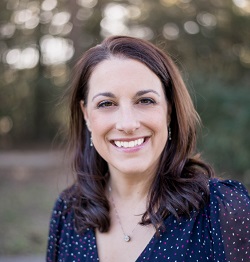
AMERICAN & COMPARATIVE POLITICAL BEHAVIOR WORKSHOP
Abstract: Though influential models of public opinion hold that group sentiments play an important role in shaping political beliefs, they often assume that group attitudes stem from socialization and are thus exogenous to politics. We challenge this assumption, arguing that group attitudes may themselves be the consequence of political views. Across three survey experiments that each uses a unique social group-issue pair, we consistently demonstrate that attitudes towards groups are influenced by information about the groups’ policy views. These findings persist even when accounting for potential partisan signaling. Altogether, these results show that group sentiments should not be regarded as wholly exogenous to policy concerns and suggest that the use of group-based heuristics can be consistent with instrumental models of public opinion.
Elizabeth Simas received her PhD from the University of California, Davis in 2011, and is currently an Associate Professor at the University of Houston. Her work uses survey and experimental data to explore a variety of topics related to U.S. elections, including the causes and consequences of candidate position-taking, individual issue preferences and their effects, and how non-policy factors influence voters’ decisions and behaviors. Her research, analyses and commentary have been featured in a wide variety of outlets, from the American Political Science Review to Teen Vogue. She also recently authored In Defense of Ideology: Reexamining the Role of Ideology in the American Electorate as part of Cambridge University Press’ Elements in Political Psychology series. In addition, Simas is an award-winning instructor and serves as an Associate Editor at the Journal of Experimental Political Science.
This workshop is open to the Yale community. To receive announcements and invitations to attend, please subscribe at https://csap.yale.edu/american-comparative-political-behavior-workshop.
The series is sponsored by the ISPS Center for the Study of American Politics and The Whitney and Betty MacMillan Center for International and Area Studies at Yale with support from the Edward J. and Dorothy Clarke Kempf Fund.
